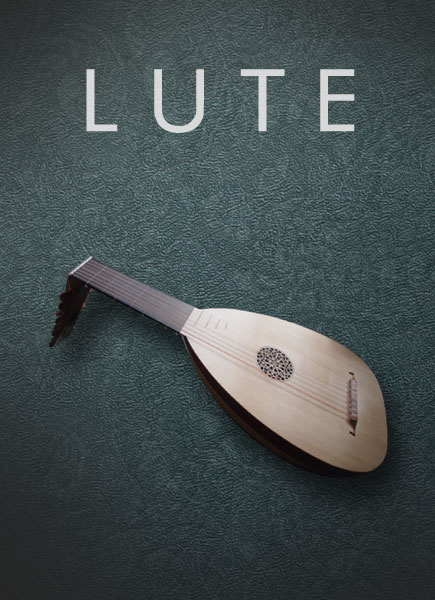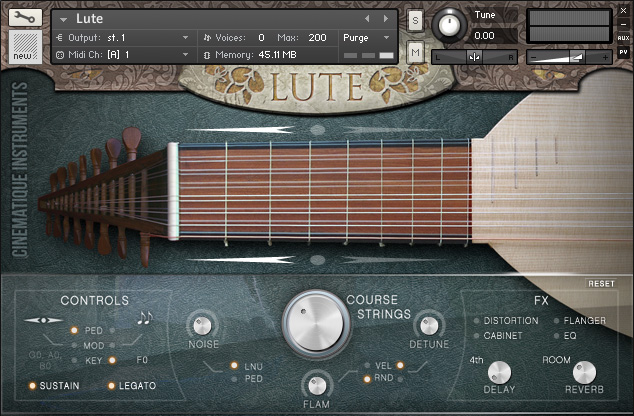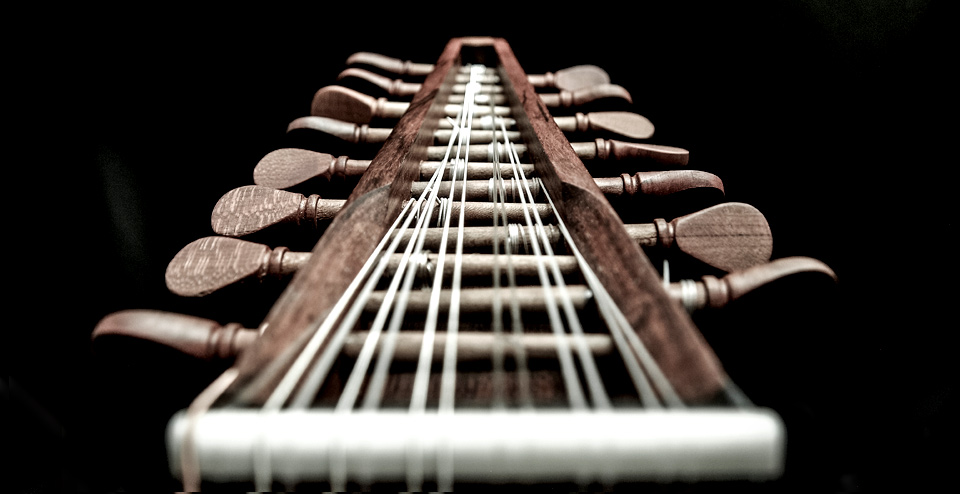The Lute
Generally saying, Lute is a term for almost any string instrument having the strings running over a sound box. But if you are actually talking about
a Lute one is meaning the European lute (or modern Near-Eastern oud) with characteristics such as a soundboard with a single decorated sound
hole called the rose, a shell of thin wooden stripes and most known: a headstock which is angled back from the neck at almost 90°.
The first Lutes where brought to Spain by the Moors and where plucked with a pick, later they where played with fingers alone. The Lute's
strings are arranged in courses, in two strings each, except for the highest pitch course which only consists of a single string, called
the chanterelle.
Our Lute is a renaissance Lute with 8 courses: (highest to lowest) a' e' b g d A G E - The courses are tuned in unison. Nowadays Lutes are
equipped with nylon strings, the same as classical guitars today, but historically they where made of animal guts.
The lute is used in a
great variety of instrumental music from the Medieval to the late Baroque eras and was the most important instrument for secular music in
the Renaissance. But it is also used in score music such as in the recent Jim Jarmusch´s movie "Only Lovers left alone".
The content
The Lute was carefully sampled in minor thirds on all the 13 strings in 3 dynamic layers and 4 round robin variations. We spent a lot of time to
capture the seamless transitions between these layers and variations, so that the instrument feels as natural and smooth as possible.
But this lute is not just sampled notes spread on a keyboard! It is more than this. Like on real string instruments it is now possible to play the same
note in different hand positions, each with a different timbre. By changing this position you can make a melody sound different and achieve a more natural
feel when played - this all happens live via modwheel, pedal or key switch.
As if this wasn't enough, we also concentrate on the behavior of the course strings. Beside a separate volume knob, we furthermore defined the parameters flam
and detune, which lets you vary the time and the tune in relation to the original string. This can be adjusted by separate knobs and then again can be controlled
randomly or via velocity. Finally we recorded sounds of finger scratching the strings, which will be automatically added by a realistic noise trigger script - of
course you can control the volume.
Once again, with the Lute we expanded our string family with an unique and warm instrument.
|



